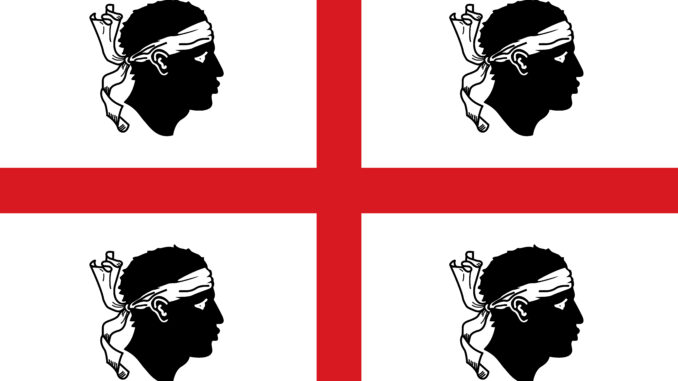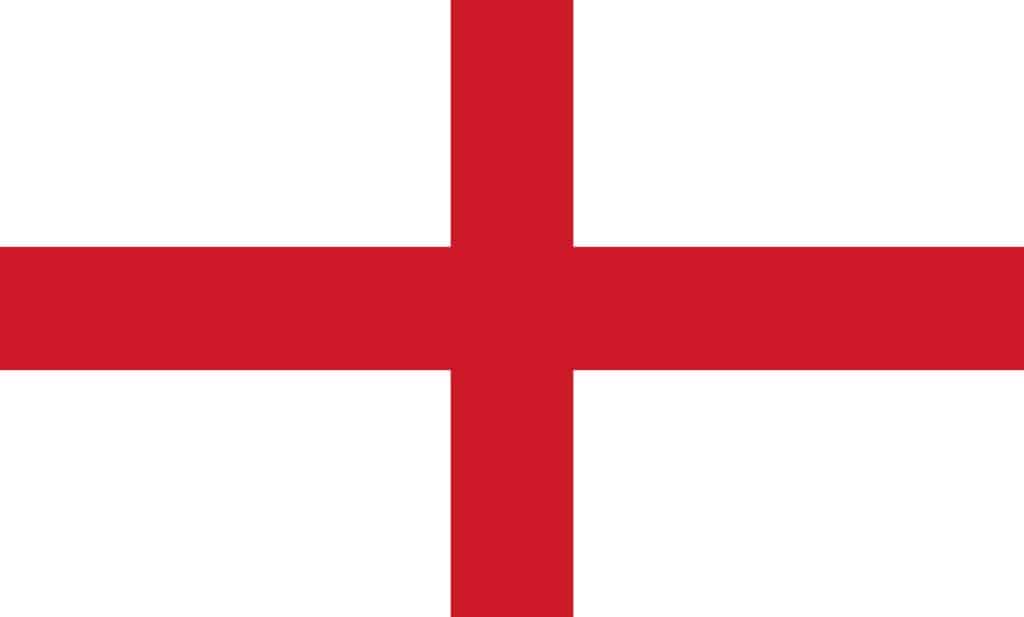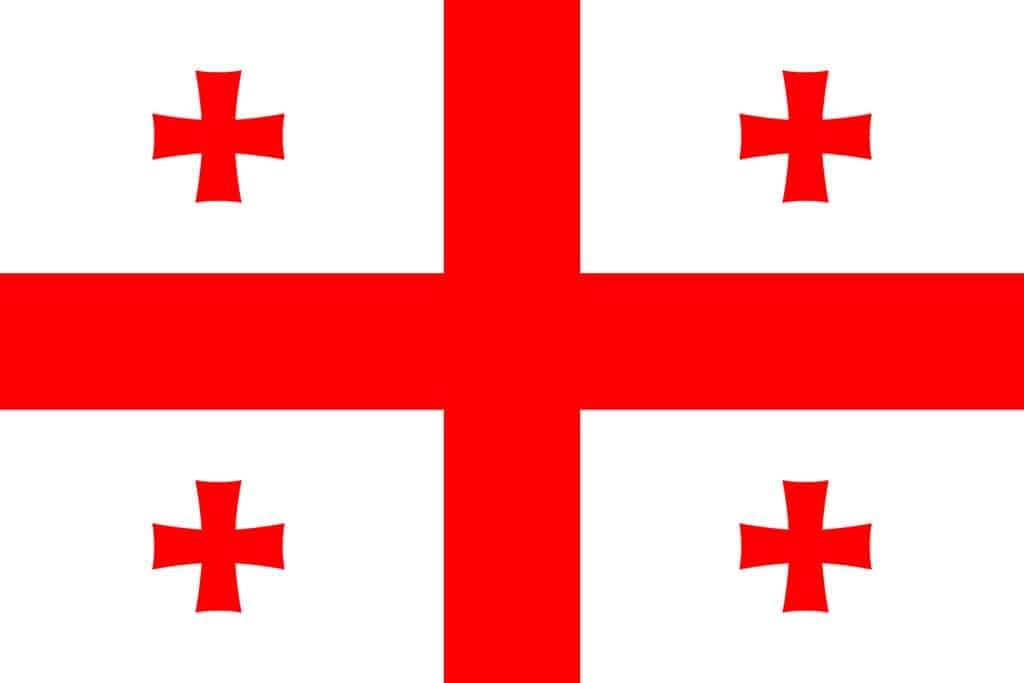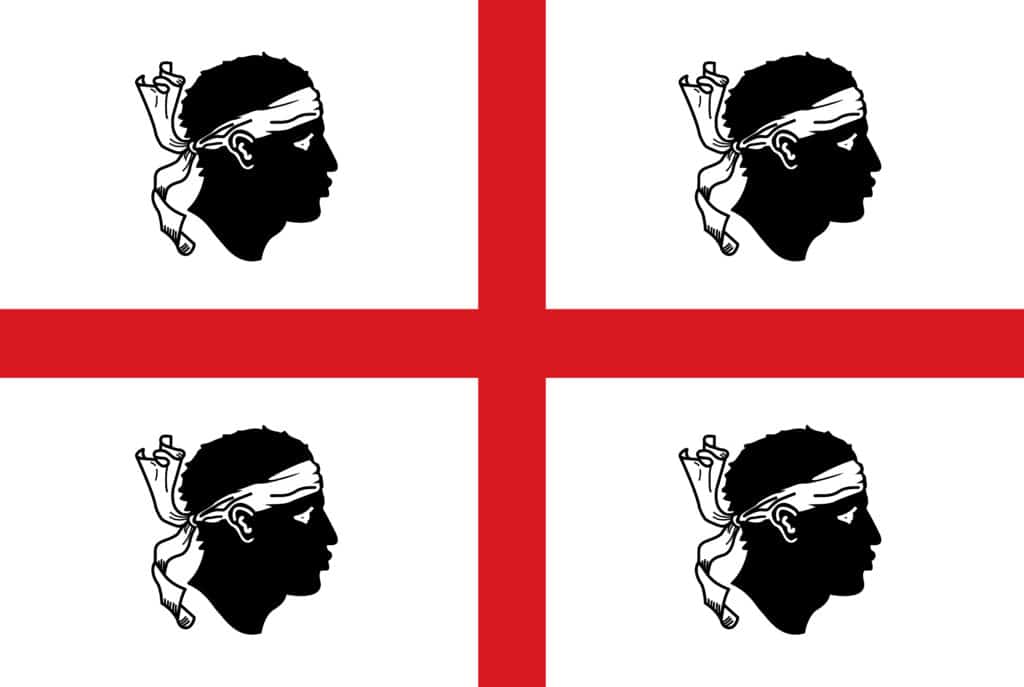
While many international flags feature crosses, only three nations feature a red cross against a white background:
- England
- Georgia
- Sardinia
The red cross against a white field is also known as the Cross of St. George. Unlike the flags of the Scandinavian nations, which have the vertical beam of the cross closer to the hoist side rather than centered, the vertical beam of England’s flag joins the horizontal band in dividing the flag into four equal quarters.
Read on to learn more about the unique history of St. George’s Cross and its use in these three countries’ flags.
Who was St. George?
Venerated England’s patron saint, St. George is thought to have been a high-ranking Roman general who was tortured and eventually martyred because of his Christian faith, which he refused to renounce.
England’s Flag

England’s flag is perhaps the most widely known use of St. George’s Cross.
It is believed that King Richard I of England, better known as Richard the Lionheart, was the first to adopt St. George’s Cross as his banner when he fought in the Crusades. Richard the Lionheart ruled England from 1189 – 1199. It wouldn’t be until nearly 350 years later when the flag would be officially adopted as England’s national flag.
Red crosses were commonly used in the Middle Ages by English soldiers as a token of protection in battle. In 1552, all saints’ flags and religious banners were outlawed during the English Reformation save for St. George’s Cross. It is believed that St. George’s Cross became officially adopted as England’s national flag around this time.
St. George’s Cross is prominently featured in the Union Jack, which is the United Kingdom’s national flag. The Union Jack went through many changes between 1606 – when the plain red and white St. George’s Cross was modified to include Wales – and 1801, when the Union Jack represented all the nations currently included in the United Kingdom.
Despite the frequent changes to the Union Jack, St. George’s Cross remained a prominent feature.
Georgia’s Flag

Similar to England’s flag, Georgia’s flag features the central red St. George’s Cross against a white field. The only difference is the four smaller red Bolnisi crosses (Georgia’s national symbol) in each of the flag’s equal white segments.
Georgia’s flag is known as the Five Cross Flag and was officially adopted as the country’s national flag in January of 2004, though it had been used to protest against Soviet rule in Georgia since the early 1990s. The Bolnisi crosses are also known as Grapevine crosses and were used by the Bolnisi Sioni church in the 5th century.
Sardinia’s Flag

Sardinia’s flag is similar to Georgia’s flag, except instead of Bolnisi crosses, Moors’ heads with white headbands are shown in each of the flag’s equal white segments, the heads facing the fly side of the flag. The current flag was adopted in 1999. Prior to this year, the Moors’ heads were blindfolded and facing the flag’s hoist side.
It is believed that the Italian province of Genoa was the first to use St. George’s Cross as their flag, and some historians argue that Richard the Lionheart took the design from Genoa.
